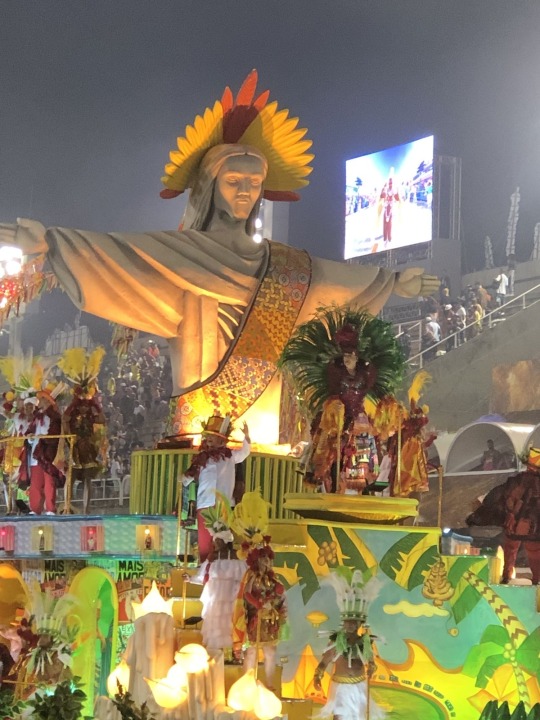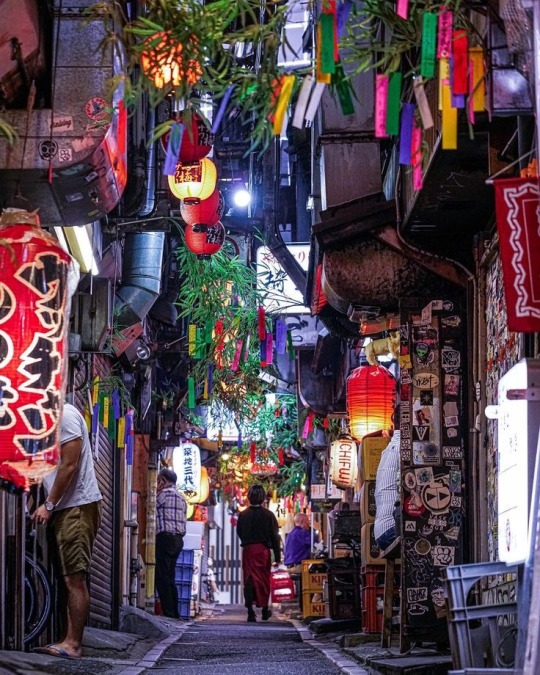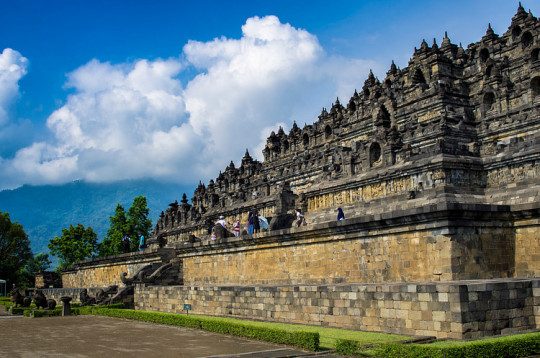#india religion population
Explore tagged Tumblr posts
Text
ind*a’s h*nduv*ta issue needs to be addressed globally bc they essentially want to do the same thing isr*el is doing to non-hindu indians. They’re also one of isr*el’s biggest supporters + isr*el funds the indian occupation in kashmir. B*p and m*di are garbage and I pray for their downfall everyday. Considering the history of 🇮🇳 , being in favor for genocide should be anti-indian but they hate muslims so much that they don’t care. But when I talk about it some yt saviour on here wants to tell me, a DESI- not just south asian, a DESI person, that im ‘racist’ for calling majority of them garbage lmfao.
#personal#before some idiot comments on my post (again) obviously I’m not blaming the entire population#but the majority does support isr*el and hates non-hindu indians esp muslims#also the h*nduv*ta claims that hinduphobia is a thing in india is real when it is not. just like how islamophobia isn’t a thing in muslim#+majority countries#the shit that i see these people say is outrageous. z!0n!sts do NOT like y’all please give it up it’s embarrassing#and just to clarify: this is not an attack on any religion. i respect and admire all religions. this is an actual right wing party
5 notes
·
View notes
Video
youtube
MAIORES RELIGIÕES NA ÍNDIA POR POPULAÇÃO
0 notes
Text
sighs why is religion so hell bent on othering feminism to prove its own supremacy
#i’m not even gonna give context for this#all i’m saying is#i’m glad to be graduating#soon#feminism#ESPECIALLY in the global south#like especially in religions that didn’t originate in the west#honestly i would get my point across better in hindi but i am yet to see other hindi speakers here#yes i know they exist india is the most populated country in the world it would be statistically impossible#for me to be the only indian on here i’m aware#but anyways#bhai sahab
1 note
·
View note
Text
Adivasi of India
Here find info on: Adivasi of India. Know, History of Adivasi in India. Adivasi Population in India. About, Adivasi Religion. Adivasi History. Tribes of India.
#History of Adivasi in India#Adivasi Population in India#Adivasi Caste List#Adivasi History#Adivasi Religion#Adivasi Language#Adivasi in English#Tribes of India
0 notes
Text
Statistics- Again
men constitute 99.7% of strangulation attacks
men constitute 99.6% of acid attacks
men constitute 99.3% of child pornography
men constitute 99% mass shootings
men constitute 99% of rapist
men constitute 98% of homicide
men constitute 98% of forcible incest
men constitute 96% of child sex abuse
men constitute 95% of molesting cases
men constitute 99% of domestic abuse
men constitute 99% of drugging
men constitute 99% of stalking
men constitute 99% of human trafficking abuse
men constitute 99% of sex trafficking abuse
Men constitute 99% of animal abuse
Men constitute 98% of bestiality
86% of makeup companies are male 99% of advertising male 98% of modeling agencies 92% of fashion media is male 94% of the fashion industry is male
Women are 10x more likely to get raped, yet this is seriously underreported considering the dead bodies
1/3 of women internationally report being sexually assaulted. we know this number to be much higher due to autopsies reported in the census
Women are 400,000,000x more likely to DIE from RAPE
not one man has ever died from rape, accounts for no coroner report ever, whereas tens of thousands of women and children die a year.
50 million women are sex trafficking victims
women make up for 95% of labor trafficking
70% of child soldiers are FEMALE
25 million are forced into child marriages > 5
650 million are in arranged marriages/ marriages consummated below the age of consent
Men make up most 98% on average of every fetish community
99% for pedophilia.
in 70 countries - that comprise 26% of the world population, women need men's permission to learn, work, or travel.
There are 50 countries in which the law states you can sell and buy women into marriage. - These countries, including India and Pakistan, make up 38% of the entire world.
There are 178 countries that do not have the same legal rights for women, where written law specifically excludes women from freedom.
There are 2.4 billion women globally who are born in countries that have written law that restricts them completely, but even more so without a man.
6 billion people believe in a religion that states that women are less human than men
Infographic Sources
Study on empathy
Some Fashion Industry Stats & Sources
Infographic
#radblr#radical feminist community#radical feminist safe#radical feminists do interact#terfblr#radical feminism#radical feminist theory#gender critical feminism#terfsafe#feminist#gnc#gnc women#gnc lesbian#gender nonconforming#gender identity#gender cult#gender ideology#gendercrit#gender critical#gender criticism#feminism#radical feminists do touch
1K notes
·
View notes
Text
Statistics - Again Men constitute 99.7% of strangulation attacks; Men constitute 99.6% of acid attacks; Men constitute 99.3% of child pornography; Men constitute 99% mass shootings; Men constitute 99% of rapists Men constitute 98% of homicide men constitute, 98% of forcible incest; Men constitute 96% of child sex abuse; Men constitute 95% of molesting cases; Men constitute 99% of domestic abuse; Men constitute 99% of drugging; Men constitute 99% of stalking men constitute 99% of human trafficking abuse; Men constitute 99% of sex trafficking abuse; Men constitute 99% of animal abuse; Men constitute 98% of bestiality; 86% of makeup companies are male, 99% of advertising male, 98% of modeling agencies, 92% of fashion media is male, 94% of the fashion industry is male; Women are 10x more likely to get raped, yet this is seriously underreported considering the dead bodies 1/3 of women internationally report being sexually assaulted. we know this number to be much higher due to autopsies reported in the census; Women are 400,000,000x more likely to DIE from RAPE not one man has ever died from rape, accounts for no coroner report ever, whereas tens of thousands of women and children die a year. 50 million women are sex trafficking victims; Women make up for 95% of labor trafficking; 70% of child soldiers are FEMALE; 25 million are forced into child marriages; > 5 650 million are in arranged marriages/marriages consummated below the age of consent; Men make up most 98% on average of every fetish community; 99% of men for pedophilia. In 70 countries - that comprise 26% of the world population, women need men's permission to learn, work, or travel. There are 50 countries in which the law states you can sell and buy women into marriage. - These countries, including India and Pakistan, make up 38% of the entire world. There are 178 countries that do not have the same legal rights for women, where written law specifically excludes women from freedom. There are 2.4 billion women globally who are born in countries that have written law that restricts them completely, but even more so without a man. 6 billion people believe in a religion that states that women are less human than men.
#radical feminism#radical feminist safe#radical feminists do interact#radical feminists do touch#terfsafe
458 notes
·
View notes
Text
Oooh Varchaasi fashion!! Really really like your ideas on it : D
I have an oc who is half Varchaasi and raised in London, and I've been wanting to dream up some Varchas style for her for ages.... I have a draft on this blog still of when I went looking at canon text and then got frustrated by the fact Varchas is aesthetically and semi implied to be related to Angkor Wat— but fashion and culturally doesn't seem at all Cambodian. Hardly the only place FL (especially older lore) lifts the tough idea of a real thing but nothing else, but a bit frustrating.

Turns out I'm not done. Still trying to puzzle out her face.
#perhaps centuries of neath life have changed them such as the religion but#id have to check my notes but i think theres turbans and cloaks as the main mentions#its a very closed city with a static population and few outsiders so at this point i just hc its just not the place it is clearly inspiredb#i also do not know much about cambodia. i did research and got intimidated by risk of looking like a fool for weighing in#but as far as i could tell there just didnt seem to be any meaningful crossover beyond the architecture really#oh and sanskrit such as 'Mihir'#grietje was born like at the gate of Varchas and us very defined by her “maybe if id been born in there id have belonged and been happy”#“maybe i was meant to be there. maybe id be healthy and have family and a home”. what shes learned of varchas she doesnt really like but#she also feels like. “well if i was born there raised there i WOULD believe the religion and like the culture”#so i feel shed definitely be very interested in varchaasi fashion (and probably not feel she had a right to wear it)#but fashion design is not something im great at especially historical too.... but yes! love your ideas and this character seems very neat#grietje was my first solidly decided fl oc because i think varchas is neat and wish to know more. you visit it in an ES surprisingly#like most of the EC the vibe is very “Exotic Foreign Land” which is based on british colonialism and exploration of asia and india i feel#at the time there was a lot of people returning from abroad learning of other cultures and often exaggerating/lying about them#leading to this often mythical portrayel of this Far Off Continent#my memory is shaky so im not sure if people still believe in like dog headed people and giants living there by victorian era#but that kinda stuff was genuinely believed and i feel that was the original inspiration for the EC#more directly of course theres stuff like the tigers like. smoking hookah and the turbans
27 notes
·
View notes
Text
I understand Greek people who ask the Greek gods to be depicted as Greek only but they should not bring the Hindu gods as an example of how "Hindus would not like it if you forced racial diversity into their gods"
Because these two pantheons are not comparable on this particular basis.
The Hindu pantheon has a wide variety of skin colors, as do the Indian populations, ranging from pale white (Shiva, Saraswati, Gauri etc.) to extremely dark-skinned (Krishna/Vishnu, Kali, Shani etc.). Many gods also have skin colors that aren't observed in humans, and the color blue is especially found in several deities, as we already know.
Hindu gods also have hair color variety. Believe it or not, many of the earliest Hindu gods (in the Vedic era) were blond, like Savitr, Indra, etc. Most of them were also mentioned to have fair skin at the time.
Hinduism spread from India to the far east (Japan), the Southeast Asia, and even many parts of Africa, and majority of these cultures had their own versions of the Hindu gods, designed to match their races and ethnicities. Also we need to remember that "Indian" is NOT a race or an ethnicity. Majority of us are extremely mixed. So again, saying that "Hindus would not like it if they changed the Hindu gods' races" does not hold much water, (because Indians and thereby Hindus come in almost all races), unless someone culturally appropriates the pantheon or, say, whitewashes a dark-skinned deity, for example (but again that's something that even many Indian Hindus do cuz colorism :'D)
Lastly, Hinduism has been one continuous religion (given it has changed a lot since the Rigvedic period), so people have been interpreting the Gods differently in different periods of time. Back in the Rigvedic times Indra was a blondie, then we got him with black hair. Now in modern day I as an Indian draw him with say light blue skin and dark grey hair. So it's all subjective.
So yes, comparing the Greek and the Hindu pantheons in this case is misleading. Both these religions are similar in many ways, and share a lot in common in cases of both mythology and deities, but not in this specific case.
But again, like I said, if the representation is shabby, forced and lacks depth, the Hindus will obviously react.
#greek mythology#greek gods#hindu mythology#hindu gods#greek deities#hindu deities#hindublr#hinduism#desiblr#representation#mythology
63 notes
·
View notes
Text
Main lore of Encounters in the Frontier
In this pinned post I will introduce the main historical chronology and concepts of the setting.
Most of the events take place in a subcontinent with the general size, shape and latitude of India, wich is a penninsula of a larger megacontinent wich occupies most of the northern hemisphere. This subcontinent, wich I will just call the penninsula, has a shallow sea to the east, another to the west, steppe and large mountains to the north and a deep and vast ocean to the south, wich eventually leads to the land of alwaysummer. At the eastern sea are the twisted islands. The penninsula has dense forests to the northeast, jungles to the southeast and the western coast is more dry and desserted. the northwest has the plateau, a large elevated plains regions, spotted with forests and the centre of the continent is hilly and mountainous.
By this time the Empire controlled many religions and peoples, in some cases loosely, and revolts had to be almost constantly supressed in the western and southern provinces. The central mountain range, southwestern dessert, northwestern plateau and norterns steppe were their most unstable frontiers, as well as eastern pirates from the Twisted Islands.
The Sun Empire had a humble origin as a city state in the southeast wich fought for its independence and won against a nomadic invador from the north. The years of foreign control made them realize their vulnerability and they began to rapidly militarize. For the Sun Empire, the best deffense was a good offense and they rapidly annexed the nearests city states in a rapid expansion. In their culture, war justified itself. They generally arrived at a city and offered them to surrender in good terms or be suffer very bad taxations and treatment after their defeat. Many chose the first option. At this time, certain warrior families began to rise to power and formed a warrior class wich selected a military leader from among themselves. There was also a very powerfull priest class, wich ended up concentrating into a single dynasty and also chose a leader from among themselves (Although the role ended up being inherited mostly). These two roles complimented each other. The military leader managed external politics and the executive power, while the priest leader managed internal politics and the juditial and legislative power, as well as of course, managing religious festivities and such. These two roles were imagined as being a husband and a wife (the priest leader was often a woman, since politics is considered a woman's job), the state a family and their population their children.The Empire spread westwards and managed to control one of the richest cities of the penninsula, Odras. This city lays under the plateau and is a hub from inland commerce and connects the trade routes of the eastern and western seas. They retained their religion and strong identity, wich had significant influence on the rest of the Sun Empire. By this time the Sun Empire's religion was politheistic with the sun god as the head of the pantheon.
Now I will introduce the Twisted Islands and the magic system of the setting:
If you have ever been introduced to the concept of the fourth dimension or wormholes it was probably by the folded paper pierced by a pencil analogy.

This setting's shape is more like this:

Some parts of the world seem to be closer in the 4D plane than others, and wormholes are more likely to appear between them. Some regions have deeper folds and portals will be more common, while others are "flatter" and there will be almost no chance of one appearing. In this world, the Twisted Islands have the most and deepests "folds", so portals appear often, sometimes on their own and connect to many places.
The Twisted Islands are an archipellago of mostly very small atolls and poor in natural resources (except fish and shellfish I guess). Still, the portal's influence in the region is very apparent to the naked eye. Rock formations take impossible shapes, caves are larger than the cliff that contains them, trees grow upside down… so they attracted many sea peoples, wich settled in them for religious reasons. The islands often only held a small population of ascetic monks, wich sustained themselves with donations from pilgrims, wich mainly came from larger, less portal-active islands and lands, wich is where most of the Twisted Island's population is originally from, it's rare for people to be born in the islands proper.
Portals don't usually open on their own, and require energy input, such as a strong fire. Monks would place an offer over the fire, raise the temperature and the offer woud suddenly disappear with a flash of light, and sometimes something else would appear on its place (most often just rocks that don't match those of the island, but enough to impress anyone that sees it). Slowly, their methods became more refined and they could locate, open and predict where an object would go more reliably. The peoples of the Twisted Islands were also known as great sailors, good at sea trading and wich could venture into the open sea, while those from the Empire only sailed next to the shoreline.
Managing portals was a dangerous task, reserved only for the elite of the monasteries, trained for years. It could result in untreatable portal wounds, in wich a limb mantains it's function but becomes "twisted". This modified limb seemed useful in locating portals and their shape and angle, so some monks started modifying themselves on purpose, thought this is shunned by most.



Ok, so those were the basis of most regions before the Dragon Age, a period of ecological and political change. It started with the explosion of a megavolvano in a distant, unknown land, wich caused a volcanic night in the penninsula. This resulted in a widespread famine through the continent… then came the dragons



Dragons were probably native to the land were the volcano exploded and came looking for a new home. They eated cattle, wild megafauna and tragically often humans at an unsustainable rate. They mainly settled in the central mountain ranges of the penninsula and the northern steppe, wich caused mass migration from these lands. These migrations were often violent and caused great damage to the already in crisis Empire.
The first encounter with a dragon happened in a frontier fortress south of the plateau, wich was taken by a dragon at night and its inhabitants devoured. The dragon took the fortress as a nest to lay eggs. The Empire, after comunication with the fortress was cut, asumed it had been taken by a plateau tribe and sent a small platoon of soldiers to retake it (dragons were only a rumor atp). The whole platoon was massacred by the dragon.
At the north, the nomads united under a charismatic ruler called Saljar, wich conquered a big chunk of the Empire's land. In an almost suicide mission, the already desperate and decaying Empire went all in against this king from the north. This campaign was full of tensions and during their travel north, guerilla attacks from rebellious regions and dragons weakened both armies. The unpopular military ruler died right before battle (most likely secretly poisoned by the Ashiva, the priest ruler as the military leader was the one that made the bad desition of starting this campaign) and it seemed like all hope was lost, but Ashiva, took control and led the army into battle (a very desperatel move). During the battle two dragons started fighting eachother while flying on top of them and fell mid fight on top of the nomad troops, causing them to break formation and flee. Its said that Ashiva himself killed the feared Saljar. Ashiva became very popular and took supreme control of the Empire, claiming to be the Sun God personified.
Still, the Empire had many problems to adress, such as the dragons (all military efforts to hunt them ended in disaster) and the former army of Saljar, now dispersed in small armies, wich sacked the Empire's towns. Ashiva, proving to be a very capable diplomat, managed to organize a meeting with these warbands, where he recalled the fight of the dragons over their own armies, and claimed that, in the same way that these beast both died while fighting, so would they if they don't adress the dragons. Ashiva proposed that these war bands start to hunt the dragons and bring their heads to him, in exchange, the Empire would grant them power over their lands. The nomadic light camelry proved to be very effective at hunting dragons and they soon became powerful noble families and settled mainly in the frontier lands or rebellious regions of the Empire to "pacify them" (It's known that the natives of these regions considered their new rulers worse than the dragons).
It took about 120 years to hunt most dragons and end the dragon age. During this time the Empire was ruled by Ashiva's divine and absolute dynasty. The new Dragon Nobility became increasingly powerful and the danger of a coup d'etat was very real. The plateau and northern coast of Alwaysummer were conquered during this period.
During the mid Dragon Age, the most powerful monastery of the twisted islands learned how to reliably send objects through portals (if a living creatures is sent through a portal ir appears dead on the other side). The chief of that monastery sent a message through the portals to every other monastery of the archipellago, calling them for a meeting to show them how to do it. This meeting was known as The Call. The comercial use of the portals was immediatly exploited and the twisted islands unify and become the major hub of trade of this world. Diplomatic trips from the archipellago reached many distant lands to set portal openings and trade centers (the envoys were met with varied reactions, sometimes welcomed, rejected, or straight up killed). These portals were specially useful for sending messages and the rivalry between the Empire and the Islands only increased from now.

#fantasy worldbuilding#spec evo#worldbuilding#art#concept art#lore#oc lore#alt history#encounters in the frontier#dragon#fantasy#fantasy art
74 notes
·
View notes
Video
youtube
Maiores Religiões na ÍNDIA Por População
0 notes
Text

THURSDAY HERO: Elizabeth Hesselblad
Elizabeth Hesselblad was a Swedish nurse and nun who transformed her convent into a sanctuary for persecuted Jews during World War II, saving dozens of lives.
Born to a Lutheran family in Sweden in 1870, Elizabeth Hesselblad was the fifth of thirteen children. As a young woman, she moved to the United States for economic opportunity. Elizabeth trained as a nurse and served a population of poor immigrants, many of whom where Catholic. It was her first introduction to the Catholic faith, and she was deeply inspired. She converted to Catholicism, describing the experience as “In an instant the love of God was poured over me.” Elizabeth returned to her home country and became a nun. Inspired by the life of St. Bridget of Sweden, she established a new religious order known as the Bridgettine Sisters. Dedicated to caring for the sick, Elizabeth opened a Bridgettine convent where patients without money were treated with compassion and dignity.
Charismatic and passionate, Elizabeth inspired many others with her faith and good works. She served as Mother Superior to many other nuns who joined her religious order, and affiliated convents were established in England, Italy and India.
During World War II, Elizabeth was horrified at the persecution of European Jews, and resolved to do whatever she could to save them. All of the convents she’d created became sanctuaries for Jewish refugees.
Elizabeth herself settled in Rome, where she served as Mother Superior at the convent there. She personally hid multiple Jewish families, including twelve members of the Piperno-Sed families whom she hid from Dec 1943 until the city’s liberation on June 4, 1944. Years later 87-year-old Piero Piperno remembered, “She saved our lives, but above all, in those dark times, she recognized the dignity of our religion.” It is estimated that at least sixty Jews, and other refugees from German racial oppression, were saved by Elizabeth and other nuns in the religious order she created.
After the war, Elizabeth continued her work helping the poor and sick. She was also known for promoting interfaith dialogue and respect between Catholics and Protestants, and between Christians and non-Christians.
Elizabeth’s righteousness was recognized by Pope John Paul II, who proclaimed her to be a Venerable Servant of God in 1999. She was beatified the next year, and in 2015 Pope Francis canonized her as a saint. Elizabeth became the first Swede to be sainted since St. Bridget over 600 years earlier. She is known as St. Maria Elizabeth.
Israeli Holocaust Memorial Yad Vashem honored as Elizabeth Hesselblad as Righteous Among the Nations in 2004. She was praised for never trying to convert the Jews she rescued but, “rather insisting that they say their Hebrew prayers and fulfill other obligations of their religion.” In 2015 one of Elizabeth’s convents was declared a “House of Life” by the Raoul Wallenberg Foundation.
Elizabeth died in Rome in 1957 at age 87. Her final words to her sister nuns were, “Go to Heaven with hands full of love and virtues.”
For her exceptional righteousness and bravery in saving Jews, we honor St. Maria Elizabeth Hesselblad as this week’s Thursday Hero.
78 notes
·
View notes
Text
What does Pakistan's propaganda look like?
Let's take a look!


This is an interview from the Expo Pavillion Japan where the Pakistani side got an interview. The Pakistani explains that "the root cause (of the problems between India and Pakistan) is Britain"
Did Britain create Ghazni, Ghori or Aurangzeb? Pakistanis claim that their civilisation starts from those figures?
Did Britain create Shah Waliullah Dehlawi, Shariatullah, Ahl-e-Hadith / Ahl-e-Quran / Deobandi /Barelvi, Tablighi, Faraizi?
Did Britain create the "two-nation theory" that advocated for separate Islamic nation for the Muslims of the Indian subcontinent because the Muslim elite refused to share democracy with the Hindus?
It's time to stop blaming Britain for partitioning India. The seeds were sowed before the British East India Company even set a foot on Indian soil. You can, however, say that British policies favoured Islamist elements.
"There are still few Muslims in India and few Hindus in Pakistan" is the understatement of the year. Islam is the second largest religion in India and they constitute over 14% of the Indian population. this is over 200 million Muslims in India. according to census data the Hindu percentage of Pakistan is just 2%. That is less than 4 million Hindus in Pakistan. this brings me to the second part of the interview. 


"If a Hindu becomes a politician in Pakistan there is a danger that he or she will engage in political activities that are in the interest of India"
-> Pakistani is directly stating that the native Hindu minority of Pakistan have absolutely no political representation, and that they do not have equal rights as citizens of Pakistan!! 
"Muslims are persecuted in India by Hindus. They are falsely accused of eating beef and subjected to abuse."
-> How dare this Pakistani equate some cow herders trying to protect their cows, their only livelihood, from cattle smugglers with the Pakistani government systematically persecuting Hindus by not giving them equal legal rights ?


All this Pakistani can do is invoke the "Muslims are oppressed in India" – card, even after stating that Hindu minority in Pakistan does not have equal rights as citizens of Pakistan. The fact that this Pakistani can say this so brazenly is because this Pakistani does not believe that Hindus are equal human beings with him. Let us look more closely at the Indus water treaty (IWT). according to the treaty, India would have had received control of 20% (Beas, Ravi, Sutlej) of the water of the Indus while Pakistan would have had received 80% (Chenab, Jhelum, Sindhu). Northern India has water shortages. India feeds not only its population but also the world. A 20-80 was never fair to Indians. Yet, Pakistan still couldn't help but sponsor terrorist attacks against Indians. As the Indian PM Modi stated after the Uri attack in 2016, "blood and water cannot flow together".
Now, the second point. Pakistan is a two-faced liar. Pakistan, in fact, does not want to be friends with India. Pakistan government sends terrorists to Indian territory to murder Indian citizens, especially Hindus. 

Thank gods that there were sensible Japanese people refuting Pakistani propaganda.

Indians, take a good look at these plants in the international media and think tanks, sent by the Pakistani establishment. This is how Pakistan has been shaping the narrative in the international stage which in turn has gotten them American support, world bank support, international monetary fund support, etc. On the other hand, reporters with Indian sounding names in the international media have been participating in writing hit jobs against India. How lost are you, India?
#desiblr#hindublr#india#pakistan#india pakistan#india pakistan conflict#india pakistan war#pakistan is a occupying terror state#pakistan is a terrorist state#indo pak war#ind vs pak#news#propaganda#pakistani propaganda#propaganda war#5gw#journalism#indus waters treaty#indus water treaty#iwt#islamism#hindutva
39 notes
·
View notes
Text
MUSUTAFU in my mha dr
now playing...black list - hime
AKA; the devils resort

GEOGRAPHY
"when i hear that song, i wanna be with you"
musutafu (MST) prefecture is an island off the southern coast of japan located in the phillipine sea. its about 500-800km away from honshu, has 25,000 mi of land and is home to 35.3 million people. MST houses the most biodiverse tropical rainforest in japan (and one of the three most biodiverse in asia) which covers the entire island. MST has mild winters and minimal snow. it rarely reaches under 60/50 degrees F (10/15C?). both summer and spring are extremely humid.
HISTORY
"buffalo soldier, dreadlock rasta"
i never script colonialism clean out, i just make it different. because im always like wait if we dont have colonialism why tf are so many people speaking european languages? makes no sense right? anyways heres how it worked (in all of my DR's btw); europeans had very little power & money compared to locals who integrated with the culture (including locals of european descent) and it was more of a "leader in name" thing. in actuality, colonialism was more similar to a trade partner agreement with colonies, and colonies themselves were very hard to keep--and usually made more money and had more clout than their european counterparts. MST had this situation with spain, england and portugal. as it was an island (and a rather big one) it was already very cut of from japan culturally, economically & socially. so when the mainland went in seclusion for the meiji restoration, the europeans had already gotten full access to MST.




CULTURE
"90 degress inna the shade, temperature tun up"
linguistics the standard language is a portuguese-spanish-tagalog-japanese fusion? and more japanese dominant. no fucking clue how thatll sound.
diversity MST is very racially & ethnically diverse, with a steady flow of immigrants from all over the world. a few prominent origin points include ; south east asia, central america, the carribbean, usa, western europe, south america, taiwan and india. but of course there are many more. the natives are pretty racially diverse as well, about half of the japanese population is "afro-japanese" which is genetically similar to aetas or melanesians.
motorsports drag racing is fully decriminalized and extremely normal. so much so that entire tournaments and elaborate race tracks are built to encourage it. (partially because of the tourism it brings) but before you can do any drag racing you need a permit or license. its very normal for celebrities and heroes to drag race, theres even a yearly competition for celebrities.
lifestyle lazy, indulgent and leisurely. days are spent relaxing at a beach, vibing at a local cookout or shopping. were very friendly, open and relaxed. its a city with very big & bold personalities. most people are ambiverts and its cartoonishly easy to make friends. unfortunately the culture can be a little shallow at times.
beauty standard few are fussy on beauty standards but a visible sun tan is universally preferred. however theres two big rules: no fake tanning under any circumstance & never tan more than two shades darker. in terms of body types, both men & women with toned bodies and "nice" asses are attractive--but for women the addition of being curvy is preferred.
religion among the japanese population the most practiced religion is catholism. this branch of catholism is very heavily mixed with shintoism & buddhism though.
mardi gras/carnaval the prefectures biggest holiday. its both the best and the worst. the sense of community is a focal point, millions of people celebrating and having fun (including the sizable portion of non-christians). everywhere is packed, music is blasting and half the city is drunk and/or high. by night everyone forgets how to act. surely the busiest day for MST based heroes.





MUSUTAFU CITY DISTRICTS (16 total but im only writing for 4)
"on an island in the sun, we'll be playing and having fun"
the beach durrr the city has a ton of beaches, but this one is the most iconic, large and populated. its right in front of the cities biggest shopping center (what is basically our equivalent of times square...but not as dirty or ghetto). theres always people at this beach, hanging out, on a work break or at a cookout.
the ghetto about 2-3 districts are classified as ghettos. they have an extremely high crime rate, but low quality of life, income & rent. expect seas of street vendors, houses stacked on eachother, music playing all through the night and walls panted with street art. (urarakas district 😍)
the islands a fifteen island archipelago off of the cities coast. considered middle class or lower middle class. life in the islands is slow and easy going. many people work in agriculture or fishing so its known for food & open air markets. the islands have a fun nightlife scene but its generally more laid back. (my district)
rural district the largest district in the city. known for its rich traditional japanese culture, the abundance of natural marijuana and nature. the district is very sparsely industrialized, especially compared to the rest of the city, so its mostly jungle/rainforest. theres also so much wildlife there! and disturbingly large roaches. something cool about it is this biiig ass gate surrounding the whole district! (todoroki family's district)
all districts have a fair share of mongrels / stray dogs. many people take them in to "guard" the house, or just to care for them
people from the islands like to have cute lil sea animal mailboxes!





KNOWN FOR
"as i recall i know you love to show off"
love for sports. soccer, basketball, volleyball, baseball & surfing are extremely popular (among both genders)
lots of the population has a shopping addiction
elaborate heists.
trashy reality tv.
big film / tv industry.
high crime rate.
musutafuans want to go to the beach like every fucking day.
really good music.
clubs, casinos, nightlife in general.
beautiful beaches. white sand & clear blue water.





POP CULTURE
"aserejé, ja, dejé"
GTA game based on MST
love & hip hop: MST
brazilian funk, rnb, afro beats, amapiano, dancehall, reggae, dembow, reggaeton and rap are really popular. way more than non japanese/latin pop music
real housewives of MST
we have golden crust, jollibee, mama empanada, and kfc but no mcdonalds 😬
havianas are really trendy.






im actually considering scripting my version of MST in some of my other DR's (idol dr especially) but im on the fence.
if any of this inspired you your free to include some for you dr <3
#shiftblr#shifting blog#anti shifters dni#shifting community#desired reality#shifting realities#shifting motivation#reality shifting#dr rambles#shifting#mha dr#shifting to mha#mha shifting#mha shifter#mha drself#dr scripting#dr scrapbook#anime shifting#reality shifter#reality shift#mha au#shifting reality#shifter#bnha shifting#bnha dr
86 notes
·
View notes
Text
Nearly ten days after the Pahalgam attack, watching the various responses to said attack...part of me is shocked, and another confused. Yet another thinks that something like this is inevitable.
Too many people reacted to what is undoubtedly a terrorist attack by channelling their rage and grief into persecuting innocent people because the terrorists asked those they killed to recite the kalma, undoubtedly being Islamic in their origin.
Yes, they were Muslim. Does that mean there should be violence against innocent Kashmiri students because 'Hindu khatre mein hain"? No. Do you know why? Because a large part of why such Islamic organisations sway local sympathies towards them is by the catchphrase "Islamiyat khatre mein hain." Sounds familiar, doesn't it? Why wouldn't it? We've heard an alternate religion version of it over TV channels and so-called "news" and "leaders of the free world" screaming Hindu khatre mein hain, khatre mein hain, after all.
So many of us believe it, too.
Why, some of us may ask, shouldn't we believe so? We are Hindus, and we aren't safe even in our own land, our own country. Perhaps we should look deeper into the 'why' of it. So much of violence against us is by ourselves, for daring to be different. Lynching, beating, far more for far too less. So what if someone eats meat? They aren't stopping you from living your life. Why should you put an end to theirs?
But, then, as people who hold power today ask, what about the invaders who invaded India 1000 years ago, 1200 years ago? People whose descendants divide the country today, covet its assets for themselves? Including Kashmir, the jewel of India?
To that is my answer: If that is what you believe, then we should all leave this land. Most of us, at least. None of us are indigenous to the land we live in, except perhaps the tribes in Sentinel island. Other than that, all of us, except for the populations that are tribal/adivasis, probably migrated from somewhere else, simply some time longer ago than 1200 years.
But then, argue some, what about religious texts that speak to tens and thousands of years of ancestry? The Mahabharata, the Itihasas, the Puranas?
In that case, well, might I remind you that Sanskrit is not the single sole classical language that speaks of thousands of years of history? There is the matter of at least one other culture and language that exists alongside. The Sangam literature too speaks of thousands of years. Three whole Sangams, might I mention.
Almost every single ancient culture claims grandiose descent. We do not know how much credence should be given to any of these claims, but, if we are giving credence to one claim, why leave the others behind? Give equal credence, why don't you?
Coming back to 1200 years of "slave mentality" and "coveting territory" I will be paraphrasing words written nearly a 100 years ago by a man who identified as Kashmiri, if not perhaps Hindu, though he rather did admire the title Pandit. He very famously preferred to be known for his scientific temper, possibly a reason why today's rulers loathe this man.
He said, and I paraphrase, that those rulers are not considered foreign rule because there was marital intermixing of races and blood relations, because whatever money was made was spent inside India, because it did not go to another country (Ghori and Ghazni aside, the temple was rebuilt within 50 years, though the 'collective trauma' was first heard of in the British parliament sometime in the 19th century)
People have a beautiful tendency to syncretise, to meld with each other, to form cultures of harmony. Look at each state of India, the cultural plurality (that a homogenous overarching 'desi' identity cannot and will not encapsulate, but this discussion is for another post) especially Kashmir. There is amazing cultural syncretism in their literature, art, architecture, even notions of Kashmiri identity.
There is a unity in diversity. When is this threatened? When a section of the population felt trampled on by the 'high-handed' handling of things (in their own words) by the 'elected' powers (there is widespread allegation of electoral rigging over the years in Kashmir)
In the '80's and '90's it comes in the form of 'Islamiyat khatre mein hain' because at that point, they felt they weren't given the opportunities they should by the Indian Government. There was liberal support from external organisations, and insurgency flourished. The Kashmiri Hindu exodus takes place in these decades, and there is an element of "Hindu khatre mein hain" which is fanned by the government. The following two to three passages are from a report by Human Rights Watch in 1992, during said exodus.
A number of Hindu refugees from Kashmir have subsequently denounced the government for encouraging them to leave under false pretenses. In a letter to the editor of Alsafa in October 1990, some 20 Pandit refugees alleged that: There can be no dispute about the fact the Kashmiri Pandit community was made a scapegoat by Jagmohan, some self-styled leaders of our community and other vested interests ... [T]he plan was to make the K.P.'s [Kashmiri Pandits] migrate from the valley so that the mass uprising against occupation forces could be painted as a communal flare up.... Some self-styled leaders of the Pandit community... begged the Pandits to migrate from the valley. We were told that our migration was very vital for preserving and protecting 'Dharm' [religious integrity] and the unity and the integrity of India. We were told that our migration would pave the way for realizing the dream of Akhand Bharat [undivided India].... We were made to believe that our migration was very important for Hinduism and for keeping India together.... We were fooled and we were more than willing to become fools.205
At the same time, it is clear that many Hindus were made the targets of threats and acts of violence by militant organizations and that this wave of killing and harassment motivated many to leave the valley. Such threats and violence constitute violations of the laws of war, and Asia Watch was able to document many specific cases. • On September 20, 1989, O.N. Sharma, a 47-year-old travel agent from Srinagar found a letter written in Urdu in his mailbox, signed by the JKLF. Sharma told Asia Watch that the letter was addressed to him by name and it referred to him as an "Indian dog." The letter told Sharma to leave the valley by September 27, or he and his family would be killed. At the time, Sharma was living with his wife, two children and his mother.
Again paraphrasing words written very soon after Indian independence. "Minority communities should feel secure in their rights as Indian citizens and that is the part of the majority to ensure. Communalism in all forms is the greatest danger to Indian sovereignty as a whole."
Even today, Kashmiri rights are not ensured. The Indian Army and militant/terrorist bodies have both behaved horribly with Kashmiri women over the years with multiple documented cases of rape still pending action (Human Rights Watch has multiple reports on such cases) and so...such boiling over feels inevitable, on some counts.
The Kashmiri people deserve a voice in their own fate.
@scribblesbyavi bhaiyya, you may like to read this.
38 notes
·
View notes
Photo

Borobudur
The Temple of Borobudur or sometimes "Barabudur" is a Mahayana Buddhist temple located close to Muntilan on the island of Java in Indonesia. Built during the rule of the Sailendra Dynasty (c. 650-1025 CE), Borobudur remains the world's largest Buddhist temple. The Buddhists among the Javanese population performed pilgrimages and other rituals at Borobudur until around the 14th and 15th centuries CE when the temple was abandoned as many Javanese converted to Islam. Rediscovered in 1814 CE, Borobudur has since then been the subject of immense research and archaeological investigations by the Dutch and Javanese. UNESCO designated Borobudur as a World Heritage Site in 1991 CE following a restoration in the 1970s and 1980s CE overseen by President Suharto (1967-1998 CE) and UNESCO, and the iconic temple continues to play a powerful role in shaping Indonesian aesthetics, architecture, and cultural identity. Borobudur is the most visited tourist site in Indonesia.
Geography & History
Borobudur is located about 40 km (25 miles) to the northwest of Yogyakarta and some 86 km (53 miles) west of the city of Surakarta in central Java. The temple lies in an area between two volcanoes - Mt. Sundoro-Sumbing and Mt. Merbabu-Merapi - as well as two rivers - Progo and Elo. Borobudur is situated very close to two other Buddhist temples in the Kedu Plain: Pawon and Mendut. Scholars and archaeologists surmise that some sort of relationship must have existed between the temples as all three are positioned along a straight line. However, what this signifies is still a matter of scholarly debate. What is known is that the ancient and medieval Javanese, whether Hindu or Buddhist, associated the Kedu Plain with tremendous agricultural production, and it was thus considered one of the most sacred places on the island of Java. Ancient peoples regarded the two rivers as especially auspicious as they evoked the sacred Ganges and Yamuna rivers in what is present-day India. Not surprisingly, given the area's favorability, the Hindu Gunung Wukir temple sanctuary, which dates to c. 732 CE, lies only 10 km (6 miles) west of Borobudur in the Kedu Plain too.
The period in which the Javanese constructed Borobudur is shrouded in legend and mystery. No records pertaining to its construction or purpose exist, and dating the temple is based on artistic comparisons of reliefs and inscriptions found in Indonesia and elsewhere throughout Southeast Asia. Strong cultural and religious influenced arrived in what is now present-day Indonesia from the Indian subcontinent beginning around the 1st century CE. This influence grew rapidly from c. 400 CE onwards. Hindu and Buddhist merchants and traders settled in the region, intermarried with the local population, and facilitated long-distance trading relations between the indigenous Javanese and ancient India. Over the centuries, the Javanese blended the culture and religions of ancient India with their own.
The name "Borobudur" itself is the subject of intense scholarly debate and is a lingering mystery. Some scholars contend that the name stems from the Sanskrit Vihara Buddha Uhr or the "Buddhist Monastery on a Hill," while others, in turn, argue that Budur is nothing more than a Javanese place name. A stone tablet dating from 842 CE makes mention of Bhumisambharabhudara or the "Mountain of Virtues of Ten Stages of the Boddhisattva." It is probable that the name "Borobudur" could be related to "Bharabhudara."
Modern historians have all disagreed amongst each other as to the political and cultural events that led to Borobudur's construction as well. It is possible that the Hindu Sanjaya dynasty initially began construction of a Shivaite temple on the spot where Borobudur now sits around c. 775 CE and that they were unable to complete their temple as they were driven out of the area by the Sailendra dynasty. (It should be noted, however, that other Javanese historians see the Sailendra and Sanjaya dynasties as one and the same family and that religious patronage simply changed as a result of personal belief. The general consensus is that there were two rival dynasties supporting different faiths.)
Archaeological and scholarly consensus places the end of Borobudur's construction around c. 800-825 CE. King Samaratungga (r. c. 790-835 CE?) is traditionally regarded as the Javanese king who oversaw the completion of Borobudur's construction. Buddhist kings, like Samaratungga, were the rivals of the Hindu Sanjaya dynasty for power within the Mataram kingdom in central Java. The Hindu Javanese under the Sanjaya dynasty constructed Prambanan - Indonesia's largest Hindu temple, located some 19 km (12 miles) to the west of Borobudur- in the same century as Borobudur, and it is entirely possible that Prambanan's construction was a political and cultural response to that of Borobudur.
What is known is that Buddhists made pilgrimages and took part in Buddhist rituals at Borobudur during the early medieval period until the temple was abandoned at some point during the 1400s CE. The root causes for the abandonment of Borobudur are moreover debated, and the reasons why the temple was ultimately abandoned remains unknown. It is known that in the 10th or 11th century CE, the capital of the Mataram Kingdom moved eastwards away from Borobudur due to volcanic eruptions, which may have diminished Borobudur as a center of pilgrimage. Although Arab, Persian, and Gujarati traders brought Islam to what is present-day Indonesia as early as the 8th and 9th centuries CE, the acceleration of Javanese conversion to Islam began to increase rapidly only in the 15th century CE. As the Javanese population accepted Islam en masse, it makes sense that Borobudur would lessen in importance. Over the following centuries, earthquakes, volcanic eruption, and rainforest growth hid Borobudur from the Javanese, rendering it inaccessible. There is evidence, nonetheless, that Borobudur never left the collective cultural consciousness of the Javanese people. Even after their conversion to Islam, later Javanese stories and myths expressed the temple's association with mystery and negative energies.
In 1814, the Lieutenant Governor-General Thomas Stamford Raffles (1781-1826 CE) who oversaw the brief British occupation of the Dutch East Indes permitted the Dutch explorer Hermann Cornelius (1774-1833 CE) to organize an expedition to find and locate Borobudur, which he did successfully the same year. In the years following Borobudur's rediscovery, the government of the Dutch East Indies commissioned and permitted archaeological studies of the temple, but looting was a major problem in the 19th and early 20th century CE. Experts recommended that Borobudur be left intact in situ, and the first restoration efforts lasted from 1907 to 1911 CE. Today, Borobudur is once again a site of Buddhist pilgrimage and a major tourist destination in Southeast Asia, but Indonesian officials remain worried about damage caused by the foot traffic at the temple, as well as lingering environmental and security issues.
Continue reading...
43 notes
·
View notes
Note
Dude people acting like Pakistan is Palestine and India is Israel is just pissing me off. "India is killing innocent civilians!" And when Pakistani terrorists kill Indian civilians it's crickets. When Pakistan tries to bomb densely populated Indian cities it's crickets. But India retaliating is "genocide" apparently. And Pakistan funding terrorists with tax money from civilians while so many people live in crippling poverty isn't genocide? Just because Islamophobia exists doesn't mean religious extremists who kill innocent people are in the right. Istg they were trying to blame their failure of their own people on others and this situation has given them a golden opportunity to get sympathy from the other Muslim countries and paint India as their villain.
So trueee like having the audacity to compare India's actions to the inhumane, unspeakable atrocities that Israel has commited is preposterous. The double standards are really getting to me now. Some really popular pages whose content is based upon Palestine and raising awareness are supporting Pakistan (and before anyone even gets the idea that I am against pro-Palestinian content, check my page for once, I will advocate for a free Palestine till the end of my life) because innocents are dying - and as much sympathy I have for any innocent dying on either side of the border - where were all these concerns when Indian citizens were dying in a similar way? Are their lives not as valuable? But then it's the India's fault because apparently these people are dying because of the actions of the country completely ignoring the fact that the very reason terrorism has reached such a peak is the corruption and extremism in the Pakistani military and the incapability of the government. Their people are suffering because their leaders have decided to make their land a breeding ground for terrorism, because their leaders decided to be the lapdog of big world governments and do their dirty work. As for trying to paint Pakistan as a victim to get support from Islamic states, I'll be very honest, I have no belief in these Islamic states. They never stood up for Palestine, they never helped Syria, or Lebanon, or Sudan, or Congo and god knows how many Muslim countries - hell Saudi is itself bombing Yemen. They are a bunch of spineless cowards who can only speak false sugar coated words. Religion has been twisted by man, it has been turned into a source of politics, of manipulation, of spreading communal hate. These terrorists who claim to operate in the name of Islam can be anything but a Muslim because I - and a million other Muslims who actively practice Islam and have deep rooted faith in our religion - have clearly been following a different religion than them. We haven't read the same Quran (with both linguistic and social context not only translation) or follow the same moral values that our teaches teaches us. I am a Muslim and I have faced islamophobia more times than I can count. Living in India - especially in recent years - as a muslim is not easy, Islamophobia is very prevalent and if you raise your voice against it you're suddenly anti-national, an invader and have to listen to "agar itni hi problem hai toh yaha pe reh hi kyu rahe ho, go to Pakistan" - just because you condemn the very obvious prejudice and discrimination. It's not easy having to constantly give the proof of your loyalty and love to your country, to have your patriotism be questioned at every step, to be viewed either as a Muslim or as an Indian but never both. But no amount of suffering validates wishing the same atrocities on someone else. It is the same thing as saying that the genocide that Israel is committing is justified because jews faced antisemitism and the holocaust. I have been advocating for peace since day one, wanting the war to be stopped. But that step cannot be taken by one side. You cannot expect India to remain silent when Pakistan continues to instigate violence. War has never bought any good to anyone. It only brings destruction, it is never the answer. Only those who don't face the adversity of war wishes for one to be started. And it's about time that Pakistan realizes this.
28 notes
·
View notes